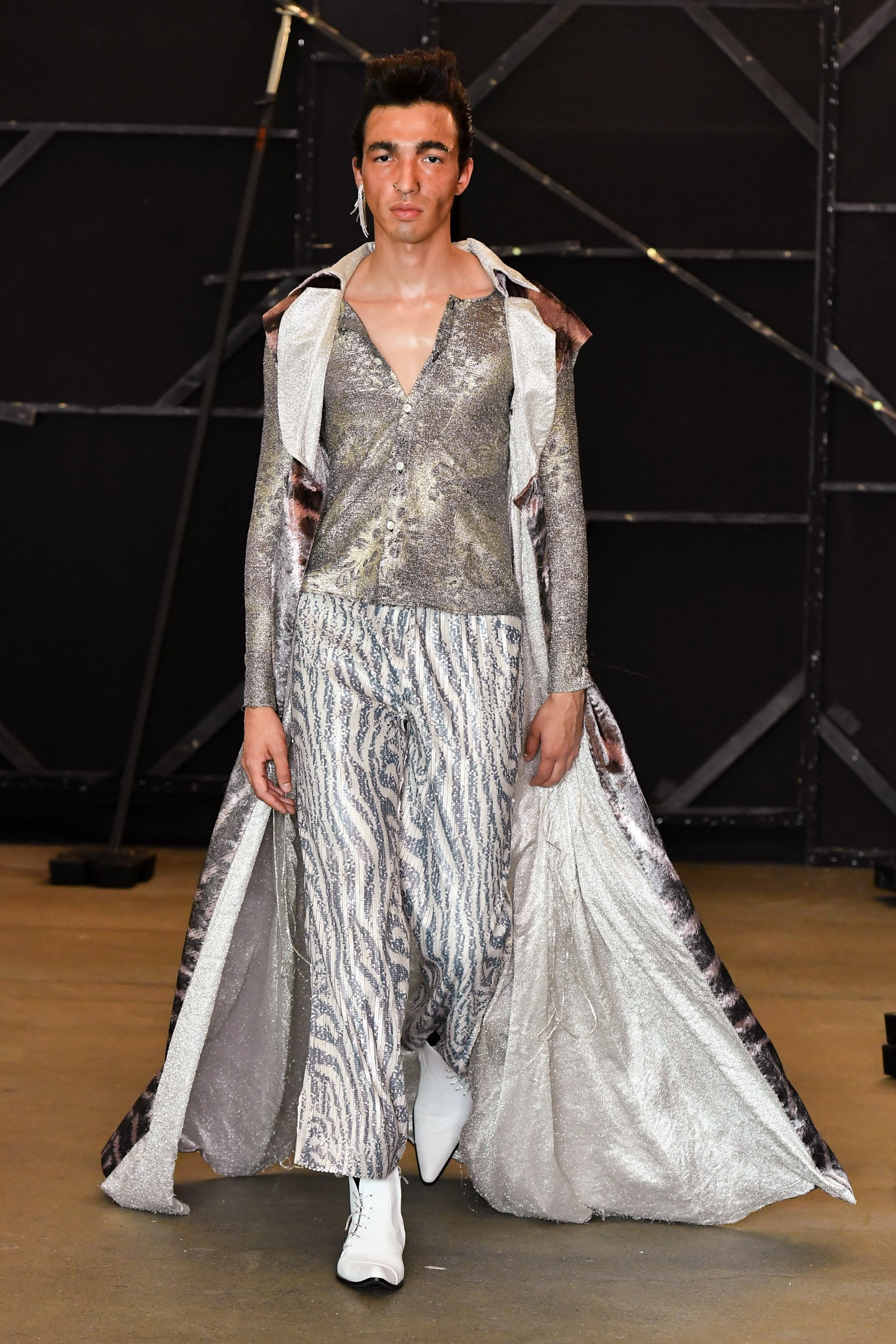Ruwanthi Gajadeera

Ruwanthi Gajadeera
SRI LANKA
“Three aspects make my collection uniquely sustainable: versatility, practicality, and commercial viability.”
The collapse of Meethotamulla, a massive garbage dump, on homes in Colombo, Sri Lanka, killed over 30 people, including children — and was a turning point in the life of designer Ruwanthi Gajadeera. Reckoning with the immense toll of waste on the environment, she began to adopt a more sustainable lifestyle.
“When I was a fashion graduate, I learned that sustainable design principles are also very close to the South Asian heritage fashion norms that I grew up with,” shares the designer, who holds a BA (Hons) in Fashion and Textile Design from Northumbria University and is studying for her MA in Design Innovation from De Montfort University. In addition to being a finalist this year, Ruwanthi was also a semi-finalist of the Redress Design Award 2021.
Her collection, ‘Take Me Home’, reflects the designer’s emotional desire to seamlessly move between the great outdoors and urban space. Made with lyocell thread, recycled polyester and nylon threads, the collection emphasises adaptability, employing versatile hems and backpacks that convert to jackets.
Ruwanthi adopts an autumnal colour palette, appealing to outdoor and hiking styles and providing easy transition to base and active layers. The outer layers are highly adaptable, with a utility harness and climbing necessities stored in pockets and loops around the waist. Genderfluid, minimalist, and timeless aesthetic including oversized silhouettes also make the collection accessible to a wider audience.
The designer used 3D software to test her zero-waste traditional patterns, and plans to develop her craft further with laser technology as a sustainable alternative to digital and screen printing, eliminating the release of harmful chemicals.
To help customers repair and recycle the garment, a QR label provides the care instructions, including upcycling information and directions to the nearest waste bank. Garments are made with monofibre textiles and removable cotton buttons for easier recyclability.
While working in fashion, Ruwanthi would see a lot of waste in production processes, as well as greenwashing from brands trying to cover their carbon footprint. With her home country of Sri Lanka also facing plenty of plastic pollution, Ruwanthi is further motivated to upcycle plastic waste through sustainable and transparent means. She looks forward to starting her own company that will provide sustainable textile and design solutions, with export-oriented solutions to strengthen local economies.
Congratulations to Redress for successfully organising the Redress Design Award 2022.
We would like to thank all of our sponsors and partners, without whom the Redress Design Award would not be possible.
Tanja Wessels challenged herself to not buying a single item of new clothing. Read her tips on how you can do it too.
The Redress Design Award is more than just the world’s largest sustainable fashion design competition.
Dive into our photoshoot shining a new light on the future creative frontrunners.
See the stunning looks from the finalists’ collections in our first ever lookbook, professionally styled and shot in studio with Farfetch.
Discover what Redress Design Award alumni have been accomplishing recently, from fashion weeks to master’s collections, publishing research, brand collaborations, and more.
Ashutosh Panda found inspiration for his sustainable collection by looking to the stars — specifically, the magnetar, one of the most powerful neutron stars of the universe.
As a Latino living in Tokyo, Japan, Cris Miranda discovered the beautiful craftsmanship of the kimono and admired its deep cultural meaning and high quality fabric.
For designer Drina Marco, the Spanish word “monda” — meaning “fruit peel” — was the first layer to what would become her sustainable collection.
Federico Badini Confalonieri has always valued nature and the environment. When he learned of the massive issue of microplastics in fashion, he knew he had to find a way to address it.
Showcasing an ability to make something extraordinary out of the ordinary, for her collection Lívia Castro turned to a wardrobe staple: jeans.
When a transgender friend experienced cyberbullying, Nawoda Bandara decided to show solidarity through design.
Seeing fashion companies abandon their garment and fabric samples without much care raised alarms for Patrick Lam.
The collapse of Meethotamulla, a massive garbage dump, on homes in Colombo, Sri Lanka, killed over 30 people, including children — and was a turning point in the life of designer Ruwanthi Gajadeera.
Reflecting the competition’s creative legacy of revaluing waste, the editorial photoshoot of the Redress Design Award 2022 unveils a warehouse of renewed wear to showcase our finalists’ looks.
Since the approval of the EU Green Deal in 2019, the European Union has emerged as the world’s leading policy maker on sustainability issues.
After winning the Redress Design Award 2021, Jessica Chang immediately joined the Timberland design team in China, working remotely to collaborate on their upcoming Lunar New Year 2023 collection, ‘Year of the Rabbit’.
Shop or browse the latest sustainable collections from Redress Design Award alumni brands.





























